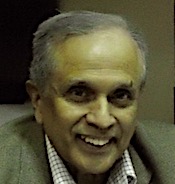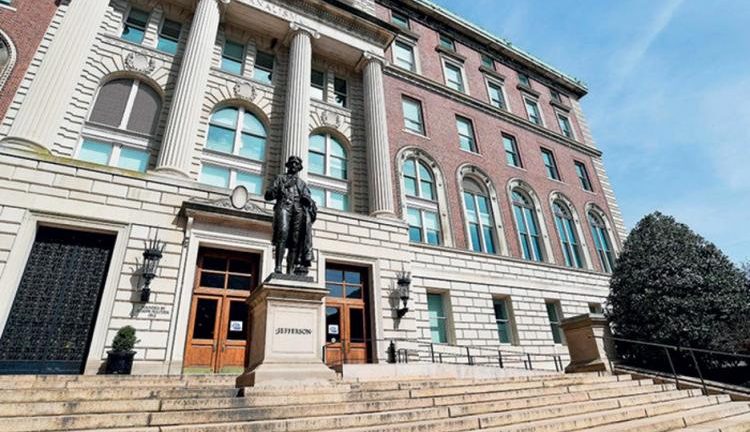By Thalif Deen
NEW YORK | 29 February 2024 (IDN) — The crisis in Gaza has triggered a negative fallout on some of the prestigious Ivy League universities in the US, including Harvard, Columbia and the University of Pennsylvania, where philanthropists who doled out multi-million-dollar donations are now threatening to reduce or cut off funding while accusing these universities of failing to take a strong stand openly supporting Israel in its ongoing war with Hamas.
These universities have suddenly become veritable battlegrounds, with hundreds of pro-Palestinian and pro-Israel students demonstrating inside and outside campuses.
A Columbia alum, in a letter to the New York Times, posed a valid question: What is a university if not a space for a free exchange of ideas?
A February 17 article in the Times, under the headline “Academic Freedom Under Fire” says the politics of free speech at Columbia are fraught, where the moves to suspend two pro-Palestinian campus groups and limit student and faculty protest have been assailed by some as censorship and applauded by others
But Ivy League universities may not necessarily be what they claim to be, as sarcastically challenged, by the late William Buckley Jr.
Described as an American intellectual, a biting commentator and founder of the rigidly conservative National Review magazine, Buckley once said: ”I’d sooner be governed by the first 2,000 people listed in the Boston telephone directory than by the entire faculty of Harvard University”, (which is located in Cambridge Massachusetts, with its medical school in Boston.
Mercifully, he did not single out my alma mater, Columbia, where the Faculty parking lot, in a bygone era, apparently had a sign, according to unconfirmed rumors, which read: “Reserved for Nobel Prize Winners Only”.
According to a news report on Cable News Network (CNN), many colleges and universities have struggled in recent months to balance free speech on the Israel-Hamas war while maintaining a healthy atmosphere.
A lighter side
But politics aside, there is also a lighter side of life on American campuses, which I experienced at Columbia University in the early-1970s when I did my master’s degree (MSc) in the Graduate School of Journalism.
The letter from the Dean read: “Congratulations, you are the first from your country” to be admitted to the GSJ.
The headline in an article in the London Guardian was a revelation to me: “How elite US schools (read: Columbia) give preference to wealthy and white ‘legacy’ applicants”. I was neither.
With Sri Lanka facing a major financial crisis in the 1970s, I was entitled to only about 20 dollars—three pounds, 10 shillings stamped on my passport which I still hold onto—in foreign currency when i left the country. My tuition fees and the cost of my board and lodging was over $55,000 dollars (currently it is over $100,000)
At that staggering cost, I would never have made it to the US. But I considered myself lucky because I received a Fulbright grant administered by the US State Department.
I arrived in New York with a degree of trepidation because my colleagues at Lake House, the newspaper office I worked in, cautioned me, perhaps half-jokingly, that Fulbright grants were given only to “half-bright students”. Mercifully, it wasn’t so.
As I began classes, I was terrified of the hazards of subway travel and scared of the impending winter weather. When I complained about the weather on my first-ever winter in New York, a wise-cracking friend advised me: “The best remedy is to curl up in bed with a good book—or with someone who has read one”.
McCarthyism
In my class, one of the professors was explaining the red-baiting that took place during the late 1940s and 50’s when Senator Joseph McCarthy of Wisconsin, in his crusade against Communism, led a series of investigations and Congressional hearings to reveal—imaginary or real—of Communist infiltration into the US government.
There was hysterical paranoia about “reds” and “Communists” in the deep state. The slogan was “Reds under the Beds”. The extent of McCarthyism was evident, he said, when there were two groups of demonstrators – the pro Communists and the anti- Communists—staging protests and counter protests in Times Square.
The word “Communism” was dreaded—but perhaps only anti-Communists were tolerated during the witch hunt under McCarthyism.
When the demonstrations got unruly, the cops dragged some of the protestors from the streets and bodily threw them into Police vans (called paddy wagons) when one of them pleaded: “I am anti-Communist. I am anti-Communist”. And the cop shouted back: “I don’t care what goddam brand of Communist you are”.
In class, we spent hours trying to perfect the “lead” in news stories (the Americans call it the “lede”) which has to convey the thrust of the story in the first sentence or the first para.
One of the professors quoted the demanding editor (Walter Matthau) in the 1974 Billy Wilder classic “The Front Page” who berates his reporter (Jack Lemmon) for missing the fact that his fictional newspaper “The Examiner” had landed a scoop in tracking down a killer.
Matthau complains he doesn’t see this in the lead while Lemmon responds that it was in the second para. An indignant Matthau shouts back: “Who the hell reads the second para (in a news story)?”
We were also told that journalists should not have a “conflict of interest”—political or personal—while covering a news story.
The best anecdote came years later when a New York Times editor was quoted as saying: “I don’t care if my reporters sleep with elephants—as long as they don’t cover the circus”.
BYOB parties
Meanwhile, I realized one of the weekly rituals of university life were the BYOB parties (Bring Your Own Booze) either on Friday or Saturday nights—or on both nights on campus or in dorms, including International House, a dorm where I lived for more than two years.
When I told one of my colleagues that BYOB did not mean anything to me since I never touched liquor all my life—and the only beer I drank was ginger beer, “That’s OK”, he said, ‘For you, BYOB means Bring Your own Blonde or Bring Your Own Brunette”.
Still, despite my nagging fears about muggings and violence in the subways, I took the liberty to visit Times Square to catch a movie around the third week of my arrival in New York.
I was a longtime movie buff and a some-time movie critic and relished my two academic courses at Columbia: Movie Criticism, by Professor Judith Crist, film critic for New York magazine and the History of Film Making by Professor Andrew Sarris, movie critic for the Village Voice.
So, for starters, I ventured out—all by myself—to see my first movie in New York city. It was a cold wintry evening, and I was wearing a heavy overcoat.
As a penny-pinching foreign student, I found that regular movies were cheapest in Times Square—one dollar before 12 noon and $1.75 rest of the day and night (where movies ran round the clock, and where most out-of-town students used to catch a night’s sleep in a back seat of the theater saving hotel costs) compared with $3 tickets at the more comfortable theaters (seats with no bugs) on the east side of Manhattan.
And after the movie, I was waiting on the platform of the Times Square subway station around 10 pm to pick up the number one train to the 116th Street/ Columbia University subway station on Broadway. My dorm, International House, was on 120th street and Riverside Drive, a walking distance from Columbia.
“Don’t carry your umbrella like that—ever again”
As I was waiting for the train, two New York city cops walked up to me, and one of them put his arms around my shoulder and said: “Let’s take a walk.” I wasn’t told why. I mistakenly thought it was American hospitality at its best. We walked a couple of yards and one of the cops opened a locked door.
At first glimpse, the dimly-lit, windowless room was a scene straight out of a Hollywood crime thriller of the 1940s and 50s. There was just one piece of furniture—a long table with a couple of chairs and a light bulb hanging loose over the table. It was reminiscent of a Humphrey Bogart/Edward G. Robinson film noir where the cops took the bad guys to beat the daylights (or was it the s—t?) out of them.
After locking the door, he asked me: “What are your carrying”. I instantly figured what it was all about. But conscious of trigger-happy cops, I instinctively put my hands up, gently unbuttoned my heavy overcoat and showed them a folded curved men’s umbrella in the upper inside pocket.
Perhaps for the cops, looking at my bulging overcoat, it perhaps resembled a Magnum .44 handgun. The cop looked at me and blurted out a warning: “Don’t carry your umbrella like that—ever again”.
As part of my subjects at Columbia, I opted for a one-month academic course on newsgathering where I would spend time with editors at the New York Times (NYT) sitting in at editorial meetings where decisions were made on which news stories to cover. So, as advised, I called the NYT and sought an appointment with one of the editors to work out the arrangements.
On the appointed day, I arrived at the NYT office and introduced myself to the secretary outside the editor’s office. Perhaps there was a breakdown in communication somewhere down the line because the editor rushed towards me, extended his palm, and asked: “You are the Dean of which school at Columbia?” “No, no, no,” I said, “I am not a Dean. I am only a student, and my last name is Deen.” We both stood embarrassed.
A couple of weeks later, I wrote a piece for a student newspaper run by the Asia Foundation in San Francisco. They ran the story with the headline: ‘FROM A HOODLUM TO A DEAN”. I picked up about $300 bucks for the story. A lot of money for a cash-starved student in the 1970s.
 This article contains excerpts from a book on the United Nations titled “No Comment—and Don’t Quote Me on That”—authored by Thalif Deen, Editor-at-Large at the Berlin-based IDN. A Fulbright scholar with a Master’s Degree in Journalism from Columbia University, New York, he twice shared the gold medal (2012-2013) for excellence in UN reporting awarded by the UN Correspondents Association (UNCA). The book is available on Amazon and the link to Amazon via the author’s website follows: https://www.rodericgrigson.com/no-comment-by-thalif-deen/ [IDN-InDepthNews]
This article contains excerpts from a book on the United Nations titled “No Comment—and Don’t Quote Me on That”—authored by Thalif Deen, Editor-at-Large at the Berlin-based IDN. A Fulbright scholar with a Master’s Degree in Journalism from Columbia University, New York, he twice shared the gold medal (2012-2013) for excellence in UN reporting awarded by the UN Correspondents Association (UNCA). The book is available on Amazon and the link to Amazon via the author’s website follows: https://www.rodericgrigson.com/no-comment-by-thalif-deen/ [IDN-InDepthNews]
Photo: Columbia University’s Graduate School of Journalism. Source: Columbia Magazine
IDN is the flagship agency of the Non-profit International Press Syndicate.


